Search
for
Sort by
Research
900-930 / 1000+ results
research Vacuum Therapy with Plant Active Compounds, Prebiotics, and Probiotics for Androgenetic Alopecia, Female Pattern Hair Loss, and Telogen Effluvium: Follow-up Study
The treatment improved hair growth and thickness in patients with hair loss, even 10 months after therapy without additional products.
research Platelet-Rich Plasma in the Treatment of Androgenetic Alopecia: An Equation with Many Unknowns
PRP therapy can be effective for early-stage common hair loss, with most patients seeing improvement, but there are inconsistencies in treatment methods.
research Hair Treatment: Platelet-Rich Plasma
research Hair Therapy: Platelet-Rich Plasma
PRP therapy can help stimulate natural hair growth and thicken hair.
research Change in Hair Growth-Related Gene Expression Profile in Human Isolated Hair Follicles Induced by 5-Alpha Reductase Inhibitors, Dutasteride and Finasteride, in the Presence of Testosterone
Dutasteride and finasteride can change hair growth genes, helping treat hair loss.
research Efficacy of Autologous Platelet-Rich Plasma Alone or in Combination with a Lotion Containing Growth-Factor Like Polypeptides and Taurine in the Treatment of Androgenic Alopecia: A Randomized, Prospective, Assessor-Blinded Trial
Combining PRP with a special lotion is more effective for hair loss than PRP alone.
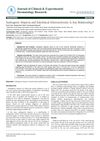
research Androgenic Alopecia and Subclinical Atherosclerosis: Is There Any Relationship?
There's no significant link between hair loss from male pattern baldness and early heart disease.

research Psychological Impact, Self-Perception, and Contributing Factors in Patients with Androgenetic Alopecia
Hair loss can cause anxiety and depression, especially in young, single women, and early psychological support is important.

research Follicular Stem Cells in Androgenetic Alopecia
Hair loss in Androgenetic Alopecia is not caused by damage to follicular stem cells.

research Taking Advantage of Phenotype Variability in a Local Animal Genetic Resource: Identification of Genomic Regions Associated with the Hairless Phenotype in Casertana Pigs
Researchers found two genes that may explain why some Casertana pigs don't have hair.
research Surgical and Medical Treatment for Male Pattern Hair Loss

research Prolonged and Late-Onset Symptoms of Coronavirus Disease 2019
Some people who recover from COVID-19 continue to have symptoms like fatigue and cough for over 120 days, and some experience hair loss about 59 days after getting sick.

research A Mixed Methods Survey of Social Anxiety, Anxiety, Depression, and Wig Use in Alopecia
Many people with alopecia experience high levels of social anxiety, anxiety, and depression, and while wigs can boost confidence, they may also cause anxiety.

research Prevalence and Associated Factors of Skin Diseases in Aged Nursing Home Residents: A Multicentre Prevalence Study
Nearly all elderly nursing home residents had a skin disease, with dry skin being the most common.

research Male Pattern Baldness and Its Association with Coronary Heart Disease: A Meta-Analysis
Severe baldness on the top of the head is linked to a higher chance of heart disease, especially in men under 60.

research Polycystic Ovary Syndrome and Fertility
PCOS affects fertility and is linked to obesity and menstrual irregularities; lifestyle changes are recommended for treatment.

research Cause of Androgenic Alopecia
Male pattern baldness may be caused by scalp pressure on hair follicles, which increases with age and leads to a cycle of hair loss. This process is not directly determined by genes.

research Management of High-Energy Avulsive Ballistic Facial Injury: A Review of the Literature and Algorithmic Approach
Early surgical treatment for severe facial injuries from high-energy impacts leads to better recovery.
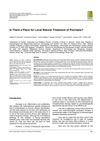
research Is There a Place for Local Natural Treatment of Psoriasis?
Propolis and aloe vera ointment effectively treats mild to moderate psoriasis.
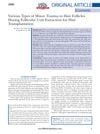
research Various Types of Minor Trauma to Hair Follicles During Follicular Unit Extraction for Hair Transplantation
Hair follicle damage happens during hair transplants and can impact success; better surgical methods are needed.
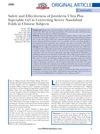
research Safety and Effectiveness of Juvéderm Ultra Plus Injectable Gel in Correcting Severe Nasolabial Folds in Chinese Subjects
Juvéderm Ultra Plus is safe and effective for treating severe nasolabial folds in Chinese subjects.
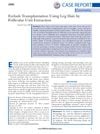
research Eyelash Transplantation Using Leg Hair by Follicular Unit Extraction
Leg hair can be used for eyelash transplants, resulting in fuller lashes with less maintenance.

research Epidemiology, Management, and the Associated Burden of Mental Health Illness, Atopic and Autoimmune Conditions, and Common Infections in Alopecia Areata: Protocol for an Observational Study Series
People with alopecia areata have higher rates of mental health issues, autoimmune diseases, and infections.
research Use of Propolis for Topical Treatment of Dermatophytosis in Dogs
Propolis was effective in treating ringworm and other skin conditions in dogs.
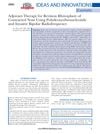
research Adjuvant Therapy for Revision Rhinoplasty of Contracted Nose Using Polydeoxyribonucleotide and Invasive Bipolar Radiofrequency
Using PDRN injections and RF treatments improved revision nose surgery results without major side effects.
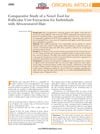
research Comparative Study of a Novel Tool for Follicular Unit Extraction for Individuals with Afro-Textured Hair
The curved nonrotary punch is better for hair extraction in people with tightly curled hair.

research Functional Ectodermal Organ Regeneration as the Next Generation of Organ Replacement Therapy
The document concludes that regenerating functional ectodermal organs like teeth and hair is promising for future therapies.

research Artificial Hair: From the Dawn to Automatic Biofibre Hair Implant
Biofibre® hair implants are safe and effective for alopecia when proper procedures are followed, with high patient satisfaction.

research Combining Follicular Unit Extraction and Scalp Micropigmentation for the Cosmetic Treatment of Alopecias
FUE and SMP together can effectively treat hair loss, needing fewer procedures.